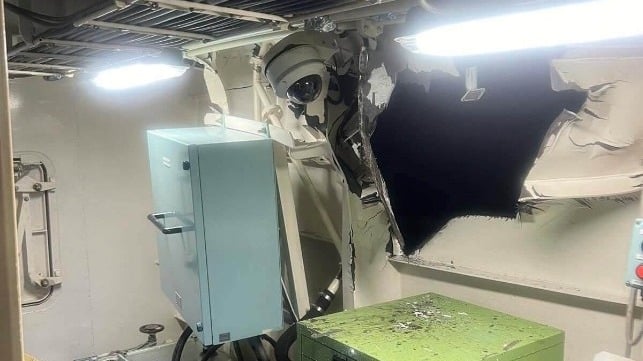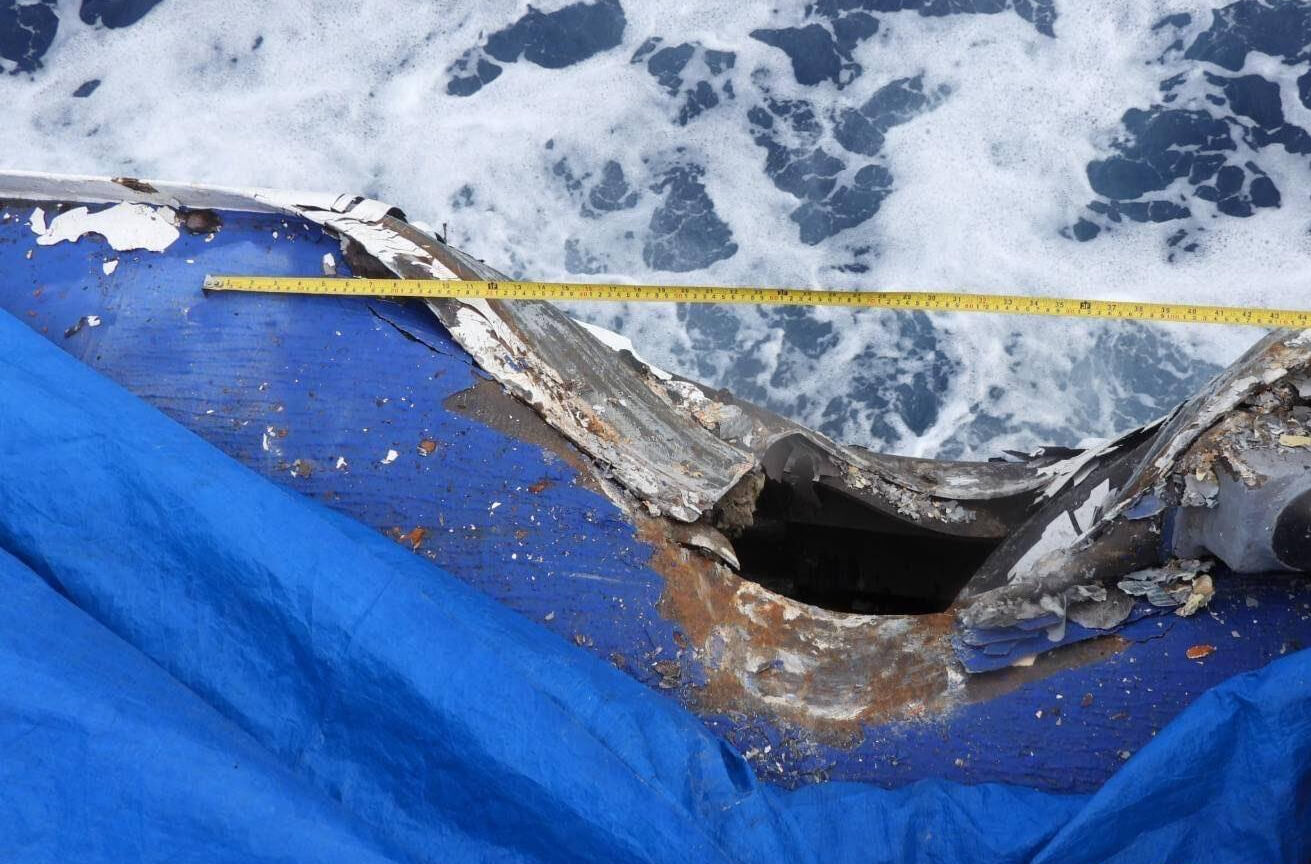Philippines Gathers Evidence on Chinese Collision While Stressing Diplomacy

A day after possibly the most damaging collision between Chinese and Filipino coast guard vessels, officials in the Philippines sought to de-escalate the situation by talking about the diplomatic options available. While the National Maritime Council called for collecting evidence, senior government officials stressed that President Ferdinand Marcos, Jr. has called for resolving the issues in the South China Sea through diplomacy.
The newly appointed spokesperson for the National Maritime Council Vice Admiral Alexander Lopez spoke to reporters a day after the incident in which two of the Philippines' newest patrol boats were damaged in collisions with Chinese vessels. The two incidents took place about 20 minutes minutes apart and at a distance of approximately two nautical miles from each other.
The vessels involved were delivered to the Philippines in 2018 under a loan program administered by OECD (Organisation for Economic Co-operation and Development) an intergovernmental organization to promote economic progress. The BRP Bagacay reportedly has a 3-foot wide and 2.5-foot long gash on one side and a foot-deep dent on the other side. The BRP Cape Engano is reported to have a 3.6-foot gash on one side. Pictures showed a hole in the hull as well as multiple dents on both vessels and reports of damage to engine exhaust on BRP Cape Engano.

One of the dents in the Philippines' coast guard vessels after contact with the Chinese vessels (PCG)
Lopez told reporters at the briefing in Manila that the Coast Guard has been ordered to “gather evidence” and develop proper documentation. He said it could be used for a possible filing of a diplomatic protest.
During the press briefing, he said the Philippines is still pursuing a diplomatic or peaceful approach, saying kinetic actions, “would not be in the best interest of our country and of China and even in the region.”
This came after both sides on Monday traded accusations about the incidents. The Philippines accused the Chinese vessels of being unprofessional and performing illegal and dangerous maneuvers. The Chinese called their actions “legitimate, professional, and restrained,” insisting that the Philippine patrol boats changed course into the path of the Chinese vessels.
Philippine government officials highlighted that the decisions would be made by the president after reviewing the recommendations of the council. Philippine Coast Guard Commodore Jay Tarriela, the spokesperson for the organization, went on the radio and called for negotiations to cover expanded elements of navigation in the disputed areas.
One suggestion that many Philippine officials have backed is seeking to expand the tentative agreements governing the resupply efforts. They said it could possibly be expanded to other areas in the maritime domain.
The United States, Germany, France, New Zealand, and Australia all issued statements of support for the Philippines. The Japanese embassy said it was “seriously concerned” over the recent aggressive conduct.

that matters most
Get the latest maritime news delivered to your inbox daily.
Chinese officials reiterated in their briefings the position that the Philippines was the first to violate China’s rights. However, the Chinese also seemed to refocus their criticism from the Philippines instead to the United States. They said America should stop inciting confrontations calling U.S. actions as undermining regional stability and exacerbating tensions.
